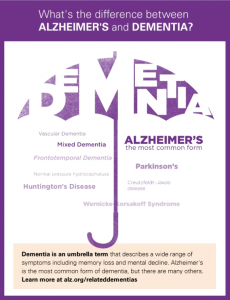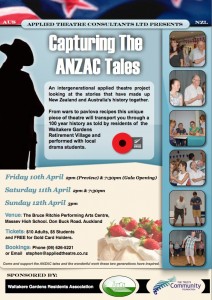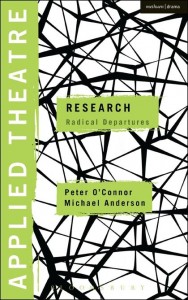Editorial
Welcome to the fifth edition of NUTS NZ – the Newsletter for University Theatre Studies New Zealand. The purpose of the newsletter is to help us communicate more effectively as a community of scholars interested in Theatre and Performance. We are glad to report that Sharon Mazer has kindly offered to be our PBRF Theatre Corespondent for NUTS NZ in 2015. Sharon will update us on important issues or developments related to PBRF over our next three issues of NUTS NZ. If you have any specific issues related to PBRF that you would like to raise please let us know.
In other big news Massey is planning to introduce a Theatre Minor next year. The School of English and Media Studies has a 52-year history of teaching theatre, currently teaches it in 10 papers and into 17 programmes, and employs a range of full time and casual theatre staff. Yet there is currently no named theatre studies programme at Massey University. The School is proposing to introduce a Minor in Theatre Studies in 2016. The plan to introduce the minor was tabled at the University Committee for Theatre and Performance Research NZ which was held at VUW in November last year. No doubt some of you will receive the CUAP application in the next couple of months where you will be invited to comment.
We have an interesting selection of stories and news items for you in this fifth issue of NUTS NZ. Please refer to the important dates below. News items for issue #6 are due by 1 May. As always, submissions should be sent to the NUTS NZ editor Jane Marshall: j.g.marshall@massey.ac.nz
|
Newsletter Issue |
Information Required by |
Date of Circulation |
|
Issue 5 |
6 March 2015 |
13 March 2015 |
|
Issue 6 |
1 May 2015 |
15 May 2015 |
|
Issue 7 |
31 July 2014 |
14 August 2015 |
|
Issue 8 |
30 October 2014 |
13 November 2015 |
Kind regards,
NUTS NZ editors: Jane Marshall and Rand Hazou.
Nuts People
University of Auckland Drama students are well represented in the Shortlist for the Adam Play Award this year. 2014 BA Hons student Michelanne Forster (featured in the NUTS NZ issue #2) was nominated for “The Gift of Tongues”, which was her Drama 720 project supervised by Murray Edmond. The shortlist also included 2004 MA alumnus Anders-Falstie Jensen’s most recent play “Centrepoint”. Congrats to Michelanne and Anders-Falstie and the team at Auckland Uni for an outstanding result. In each edition of NUTS NZ we want to be able to profile an academic and a postgraduate student to show case “our people” and their current research/interests. For this issue we are trying something a little different and have invited Massey student Rebekah Hines to submit a short piece on her experience being enrolled in the postgraduate paper 139.763 Community Theatre which is coordinated by Massey’s Asoc. Prof. Angie Farrow.
139.763 Community Theatre
November 17th, only ten days after completing my Bachelor of Arts I was locked and loaded to participate in my first Masters paper at Massey University, 139.763 – Community Theatre, taught by Dr. Angie Farrow. My experience with this paper can only be communicated in brief because the reality is, there was so much that we did and learnt that the only way you can fully understand it, would be to participate yourself. And the truth is, four students engaging in creativity to recreate the intimate truths of reality, is a beautiful mess only understood in fullness, in the moment. But let me give you a snippet of my contact course in December at the Palmerston North Campus.
After spending time engaging with Playback Theatre, watching documentaries and conversing about various theories and agencies of Community Theatre as a whole, my fellow students, Lyn, Hana Laurence and I were set the task of creating a piece of theatre for a community of our choosing, making sure we were engaging with and understanding the concepts we had been learning about. We quickly found ourselves at Palmerston Manor, a rest home, gleaning stories from various residents as inspiration.Gathering stories was not the most difficult task. Sure there were moments when we had to speak slower, repeat our questions, speak louder, lean closer or listen to the same story on repeat, but getting stories, getting any form of inspiration was not strenuous. The difficult task was choosing which characters to portray, what to stories believe, which bits to use knowing we had to somehow recreate those stories theatrically. We tried our hand at devising, with the help of our tutor Rachel, and while what we devised was poetic it was so abstract that Angie advised us our audience would not understand it. She reminded us that our performance was not for academics or avid theatre goers, but rather for a community riddled with alzheimers, dementia, deafness and partial comprehension, many of whom would never have been to a theatre before. So we started again. As we devised, there was a sudden realisation of self-imposed importance. In that moment, seemingly irrelevant bits of knowledge, hazy memories, unheard of locations and excessive lovers, gave life to nonsensical realities and we, who had considered them worthless were forced to relearn what it meant to be gracious; what it meant to live in someone else’s mind; what it meant to relinquish judgment on the recollected mishmash of falsified truths shared in heaven’s waiting room and to love that which wasn’t, that which was all which we would retell. This was probably one of the hardest lessons to learn, but it makes sense- it’s what we were there to do, that is what community theatre does, it presents a story on the community’s terms.
Performing for the residents is something I’ll be reluctant to forget. It was there, performing what we titled Truth and Lies that we got a real life glimpse at the agency of Community Theatre. It brought feuding couples together for just a moment as they laughed at the same joke, or held their breaths during a sad moment, gasped together and remembered together. I think, in a modern world in which the focus often seems to be on the individual first and the community second, theatre and specifically Community Theatre provides the rare opportunity to come together with other human beings to experience a sense of collective belonging. Working with that community I now understand how Community Theatre offers a chance to discover positive potential outside of society’s label. While the majority of society views rest-homes as sad, boring places, we saw a positive potential; we saw a range of personalities and were invited into a beautiful place of grace and wonder, which we then recreated.
ADSA Prizes
It is that time of the year again, when we call for nominations for ADSA’s many prizes to acknowledge outstanding achievements by members of the association.
In 2015, ADSA will seek to award the following prizes –
- ADSA Publication Subsidy Scheme, due 30th March 2015 http://www.adsa.edu.au/prizes/adsa-publication-subsidy-scheme/
- Marlis Thiersch Prize, for best journal article or chapter, due 31st March 2015 http://www.adsa.edu.au/prizes/marlis-thiersch-prize/
- Philip Parsons Prize, for Performance as Research at Hons, MA or PhD level, due 31st March 2015, http://www.adsa.edu.au/prizes/philip-parsons-prize/
- Veronica Kelly Prize, for best Postgraduate Paper, nominations due by 22 June 2015 at latest, http://www.adsa.edu.au/prizes/veronica-kelly-prize/
- Geoffrey Milne Bursary, to assist students in the first half of PhD or comparable program to attend the ADSA Conference, due 30th April 2015 http://www.adsa.edu.au/prizes/geoffrey-milne-bursary/
If you are eligible for a prize, or know someone who is eligible for a prize, we strongly encourage you to contact the convenor in the next few weeks, as the prize nominations will start to close from 30th March 2015 forward.
CALL FOR PAPERS
DEADLINE: 1 April 2015
IN-flux, IN-stability, IN-sensitivity: The Struggle of Performance in the Arab World
3 – 5 December 2015
The Global PSi 2015 event FLUID STATES is excited to announce that the IN-flux, IN-stability, IN-sensitivity: The Struggle of Performance in the Arab World symposium will be hosted at the Lebanese American University campus, Byblos/Beirut, from 3-5 December 2015.
IN-flux, IN-stability, IN-sensitivity coincides with the 5th anniversary of he historic Arab Spring events that have swept across the Middle East and North African (MENA) region. The Arab Spring brought a vast movement of both violent and non-violent demonstrations in the Arab region. History hasalways contained times of unrest in the MENA area but none as global as the Arab Spring. How has this movement affected the region and more particularly ‘art’ in the region? The answer to this question is one the symposium seeks to explore through paper presentations, panel discussions and workshops. We invite submissions of presentations that reflect on the impact that these political and infrastructural developments are having on performances and performers, and the ways in which both performers and scholars understand performance structures in political, ethnic and cultural terms in the MENA region.
SUBMISSIONS
Types of submissions:
- Paper presentation (20 minutes)
- Panel presentations (groups of three or more individual presenters – 60minutes)
- Workshops (60 minutes)
We invite presentations that examine themes such as:
- How the Arab Spring effect art and performance in the region
- The function/role of art in such tumultuous times
- How the exceptional circumstances are enacting upon the body
- Forms performance acts and actions are art are taking
- Implications of these acts/actions on our thinking
- Ways in which the Arab Spring events are shifting the presence and visibility of performance in the region
- How performance provides a means of recreation, empowerment, support, protest, display, provocation, pleasure or entertainment in the various locations and situations in the MENA region.
- All submissions and presentations must be in English or Arabic.
Submissions require the following information:
1. Name, title, phone number, institutional affiliation (if applicable), e-mail address, and title of presentation.
2. An abstract (no more than 250 words in length) summarizing the topic, methodology and research to date, and indicating how the proposal relates to the symposium themes.
3. A brief presenter’s bio (no more than 150 words in length).
Submissions are to be sent electronically to Dr Rose Martin (rose.martin@auckland.ac.nz) no later than 1 April 2015. Notification of acceptance will be by 1 May 2015. All abstracts will be peer-reviewed.
SYMPOSIUM REGISTRATION
- The deadline for all registrations will be 1 November 2015.
- Registration fee: $250.00 USD
- Note: Further details regarding accommodation, transportation, symposium schedule and keynote presenters will be circulated at a later date.
- If you have any questions regarding the symposium or submissions please contact: Dr Nadra Assaf (nassaf@lau.edu.lb) or Dr Rose Martin (rose.martin@auckland.ac.nz)
Performances and Upcoming Events
‘Capturing The ANZAC Tales’
‘Capturing The ANZAC Tales’ is an inter-generational theatre project facilitated by Associate Professor Peter O’Connor, Director of the Critical Research Unit in Applied Theatre at the University of Auckland.
The performance will take place on Friday the 10th, Saturday the 11th, and Sunday the 12th of April – at the Bruce Ritchie Performing Arts Centre, Massey High School, Don Buck Road, Auckland.
Tickets are $10 Adults and $5 for Students.
- Venue: The Bruce Ritchie Performing Arts Centre,
- Massey High School, Don Buck Road, Auckland
- Tickets: $10 Adults, $5 Students and FREE for Gold Card Holders.
- Bookings: Phone (09) 626-5221 or Email stephen@appliedtheatre.co.nz
CRUAT (Critical Research Unit in Applied Theatre), Faculty of Education, University of Auckland
Public events and activities 2015
May 2015
CRUAT welcomes Curt L. Tofteland, Founder and Producing Director of Shakespeare Behind Bars, USA, who will give presentations in Auckland. Christchurch and Wellington. These talks are accompanied by one-day symposia in each location that will showcase projects happening in New Zealand prisons and discuss issues around rehabilitation and reintegration with the arts and academic community. These events are being hosted with Arts Access Aotearoa with the University of Auckland Creative Thinking Project. See below for important dates. For more information contact: Associate Professor Peter O’Connor: p.oconnor@auckland.ac.nz
- Monday 18th May, evening (Auckland venue t.b.c.) Public Lecture by Curt L. Tofteland,
- Tuesday 19th May, 9am-3pm (Auckland venue t.b.c) Creative Corrections Symposium
- Monday 25th May, evening (Christchurch venue t.b.c.) Public Lecture by Curt L. Tofteland
- Tuesday 26th May (Christchurch venue t.b.c.) Creative Corrections Symposium
- Wednesday 27th May (Wellington venue t.b.c.) Public Lecture by Curt L. Tofteland
- Thursday 28th May (Wellington venue t.b.c.) Creative Corrections Symposium
333 Creativity in the Community at Massey

This semester Massey has introduced a new paper called 139.333 Creativity in the Community. The paper has been mainly designed for Bachelor of Communication students majoring in Expressive Arts and Media Studies. It can also be taken as a useful elective in many other degrees. The paper offers students an opportunity for experiential learning by encouraging students to design and deliver group-based creative projects within a specific community setting. The paper is being offered at Massey’s Wellington and Albany campuses. At Wellington, students will be partnering with the Wellington rape crisis centre to explore issues around rape culture.
As part of the delivery of this pilot paper at the Albany Campus, we will be partnering with Aria Gardens, an aged care facility located adjacent to the Massey University campus. Together we will work towards delivering creative interventions that explore issues of positive ageing and dementia. According to Alzheimers New Zealand, two out of every three New Zealanders are touched by dementia. For a third of New Zealander’s dementia is one of the things feared most about ageing (See http://www.alzheimers.org.nz). By partnering with Aria Gardens on the delivery of 139.333 we are hoping to engage with some of the issues surrounding ageing and dementia, and find creative interventions that challenge negative stereotypes within the wider community. There are some interesting parallels between the aims of this paper and some of the initiatives being led by Associate Professor Peter O’Connor at the University of Auckland. The hope is that Massey students doing 333 in Auckland will attend the upcoming inter-generational theatre project ‘Capturing The ANZAC Tales’ which will be staged in April.
Publications
Applied Theatre: Research: Radical Departures
By Peter O’Connor and Michael Anderson (Bloomsbury Methuen Drama, 2015)
Blurb from the Publisher: Applied Theatre: Research is the first book to consolidate thinking about applied theatre as research through a thorough investigation of ATAR as a research methodology. It will be an indispensable resource for teachers and researchers in the area. The first section of the book details the history of the relationship between applied theatre and research, especially in the area of evaluation and impact assessment, and offering an examination of the literature surrounding applied theatre and research. The book then explores how applied theatre as research (ATAR) works as a democratic and pro-social adjunct to community based research and explains its complex relationship to arts informed inquiry, Indigenous research methods and other research epistemologies. The book provides a rationale for this approach focusing on its capacity for reciprocity within communities. The second part of the book provides a series of international case studies of effective practice which detail some of the key approaches in the method and based on work conducted in Australia, New Zealand, Singapore and the South Pacific. The case studies provide a range of cultural contexts for the playing out of various forms of ATAR, and a concluding chapter considers the tensions and the possibilities inherent in ATAR. This is a groundbreaking book for all researchers who are working with communities who require a method that moves beyond current research practice. See more at: http://www.bloomsbury.com/us/applied-theatre-research-9781472513854/#sthash.atAey65Q.dpuf

